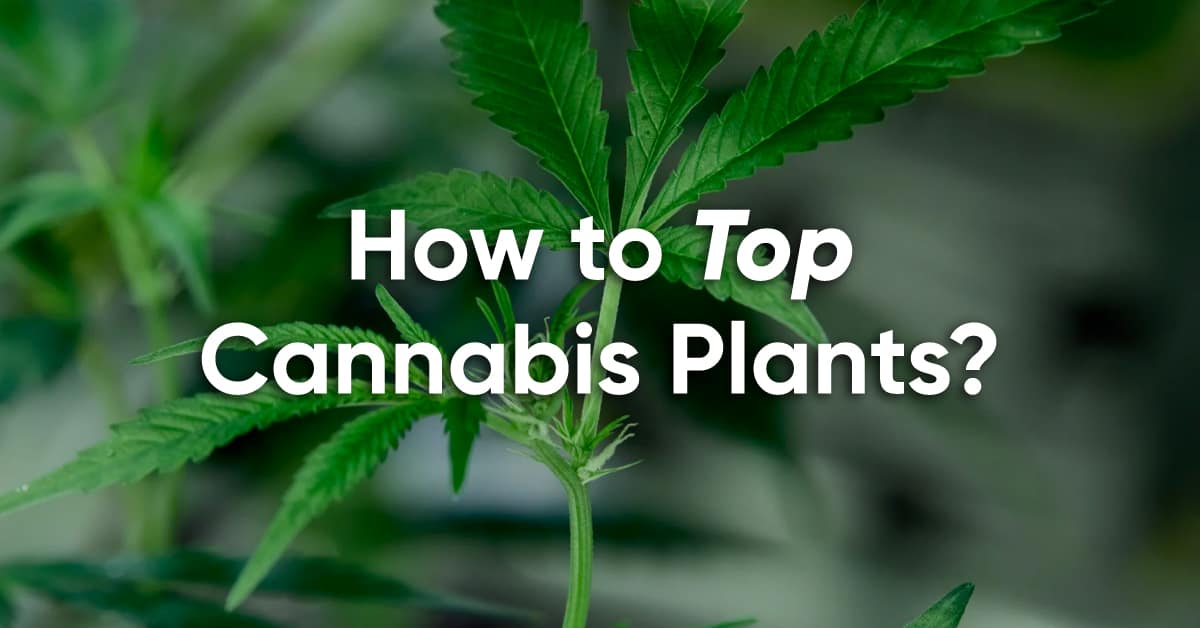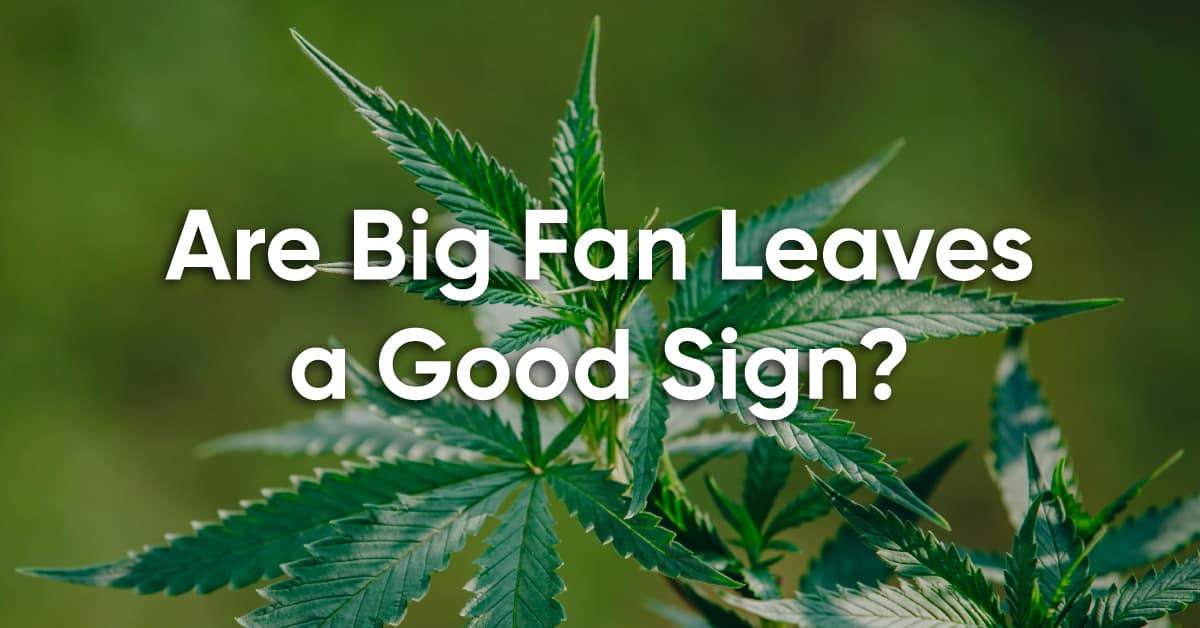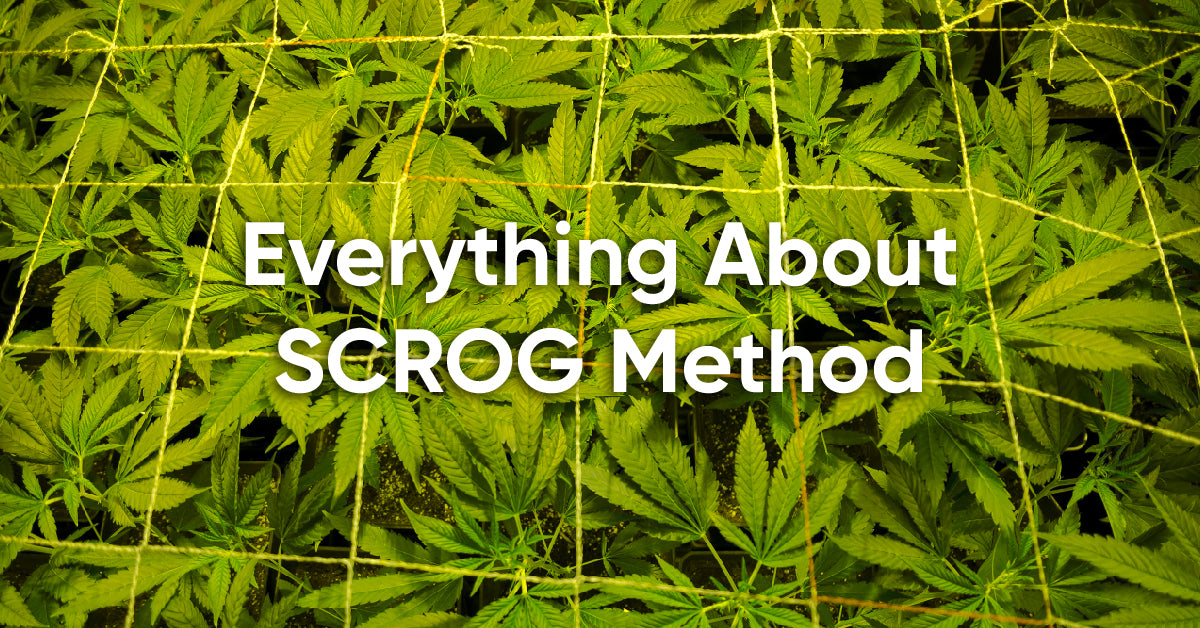Cannabis Low Stress Training: What is LST and When to Start It
Cultivating cannabis plants is a combination of both art and science. The "art" portion involves not only caring for the plant but also shaping and structuring it.
Low Stress Training (LST) is a tool that every grower should incorporate into their cultivation practices! LST cannabis allows growers to manipulate the shape and structure of the plant without causing significant stress. It enables growers to enhance the plant's efficiency, and yield potential, by maximizing the utilization of the grow space!
In this article, we will give tips and directions on low stress training techniques, discuss benefits of low stress training, and explore its effects on cannabis plants. Let's get into it!
What is LST?
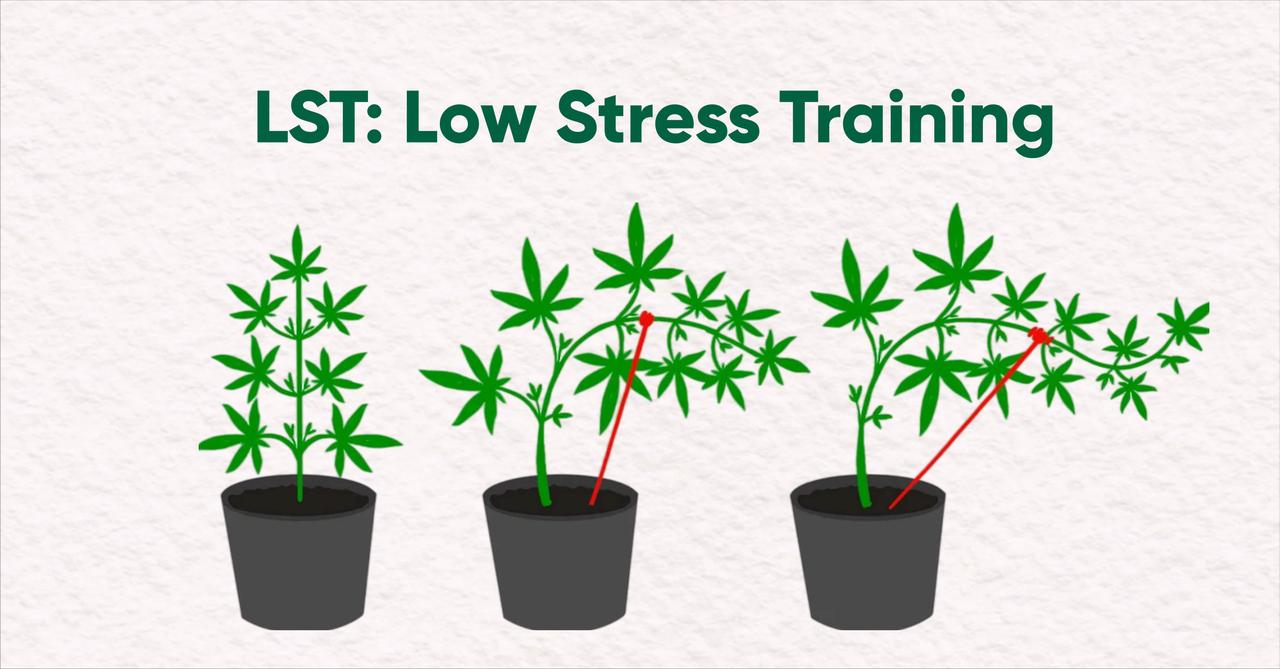
What is LST, and why do you need to consider it? Low stress training is a technique used to manipulate the plant's structure and how it grows. The goal of LST cannabis is to create more main branches or "tops" capable of producing and supporting large, dense flowers—a goal every grower wants to reach!
LST cannabis involves gently bending and securing branches to break the plant's apical dominance, and promote lateral or horizontal growth. In doing so, the plant is allowed to distribute resources throughout the plant better and more efficiently. This helps build a more even canopy and robust structure, allowing for more light penetration and development of lower growth sites into independent branches!
How Does LST Affect Your Cannabis Plants?
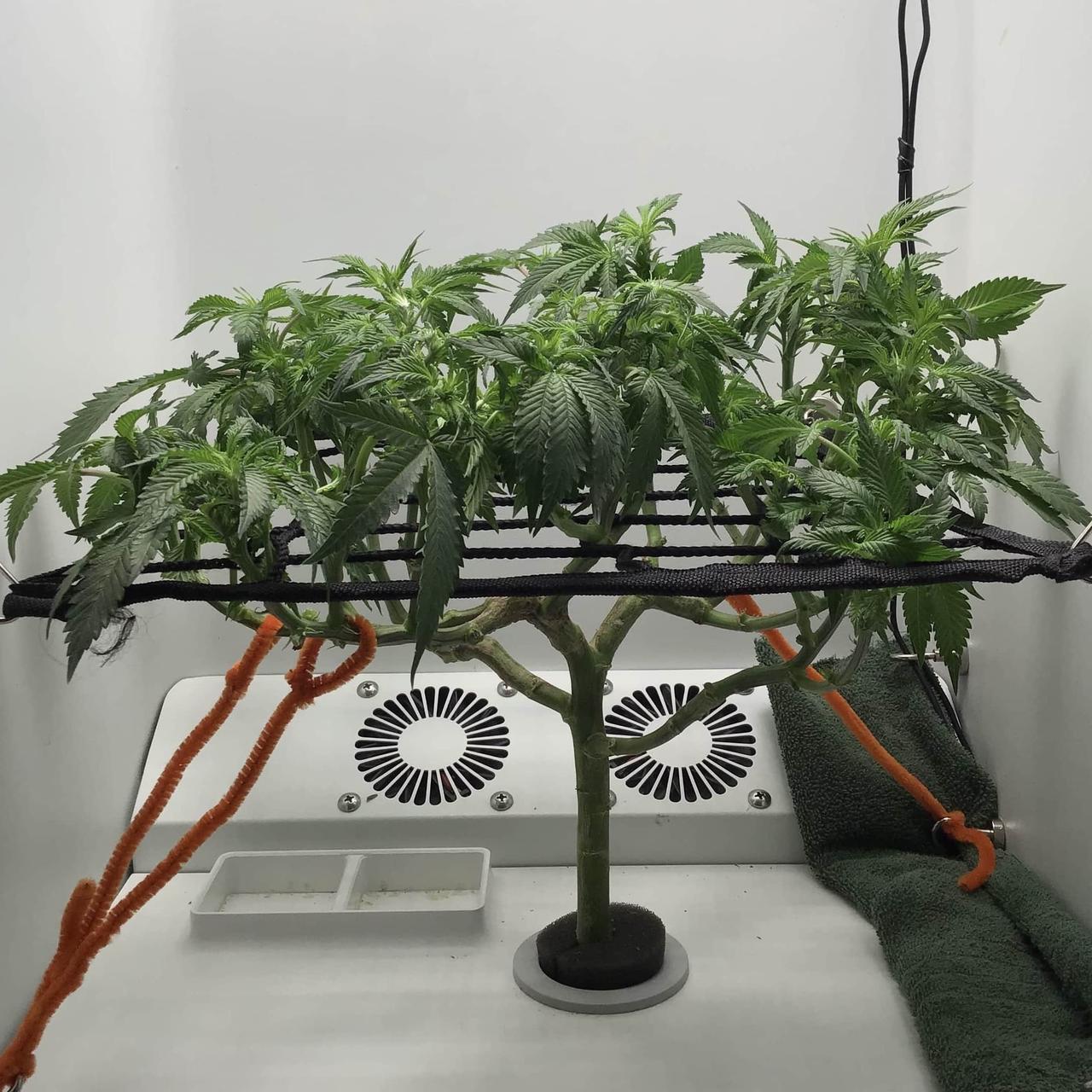
Image via Hey abby grower @Alexander RastaMan
When applying low stress training, the bending-down and securing of branches will stop the plant from growing vertically, and force it to grow more laterally by breaking the plant's apical dominance. Typically, cannabis plants exhibit a natural growth pattern akin to a Christmas tree, with a single dominant stalk and multiple subsidiary branches beneath it. This dominance, known as "apical dominance," prioritizes the main stalk for the distribution of water, nutrients, and growth hormones (auxins).
By bending the branches, and securing them lower than the rest of the growth, you are breaking apical dominance. This process has a similar effect to topping cannabis, but with considerably less stress imposed on the plant.
Breaking apical dominance allows for a more even distribution of resources within the plant, leading to better development of lower growth sites. Consequently, these lower growth sites can branch off and become bigger and stronger independent main branches. This enhanced structure significantly increases the cannabis plant's yield potential. The greater number of main branches a plant possesses, the greater its potential yield.
When to Start LST Cannabis?
Simply put, the earlier you start LST your cannabis plant, the better! Early low stress training not only provides the plant with more time to build a strong and robust structure, but also makes the process easier.
In the early cannabis veg stage, the cannabis plant is more flexible, making it easier to manipulate branches without causing unnecessary stress or damage.
Commencing low stress training early allows for better control over the plant's structure, by promoting lateral growth over vertical growth. This encourages the development of main branches and provides sufficient time to adjust the plant's structure if necessary.
Step-By-Step Guide to Cannabis Low Stress Training
You can follow these steps to effectively LST your cannabis plant.
1. Choose the Right Time
It's best to start LST during the early stages of vegetation when the plant is more flexible and receptive to training. Younger plants tend to recover more easily from training/manipulation.
2. Gather the Tools and Supplies Needed
Flexible plant ties, plant straps, trellis net, wire, or LST clips are essential for LST.
3. Find the Main Stalk/Stem
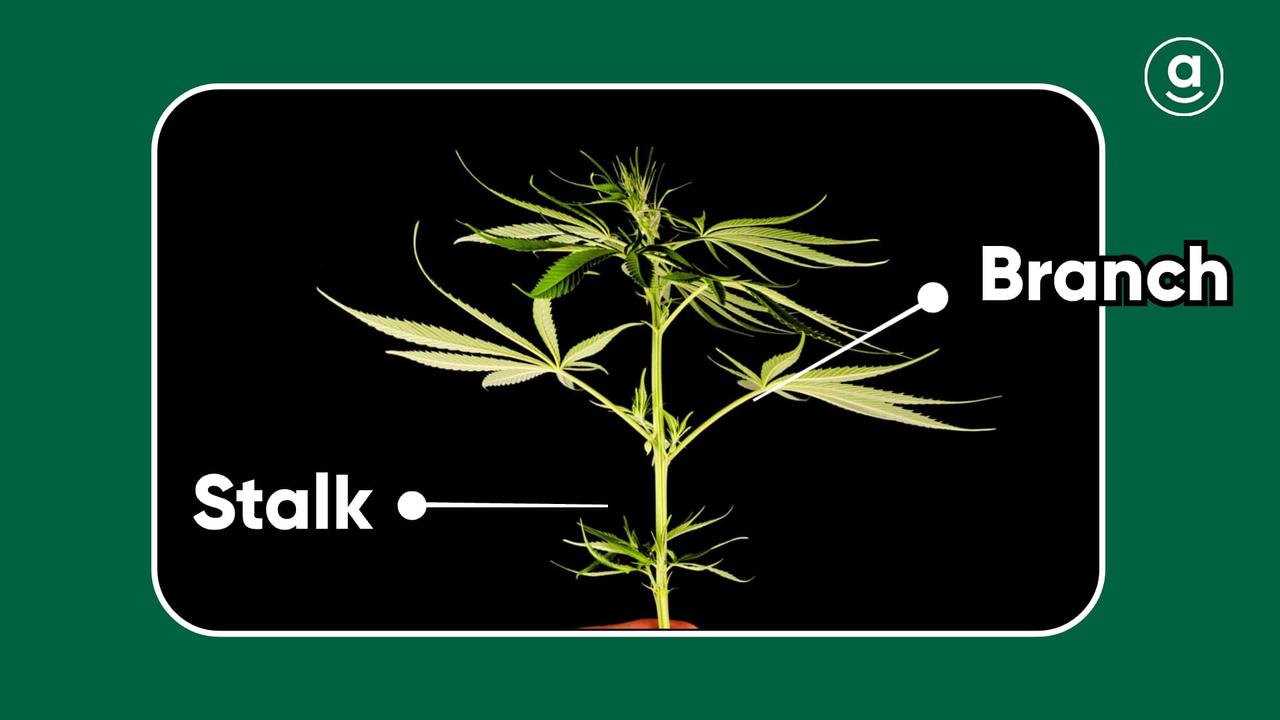
Start at the bottom of the plant, and follow the main stalk to the top. This will be the first and most important stalk to be trained.
4. Bend and Secure the Main Stalk
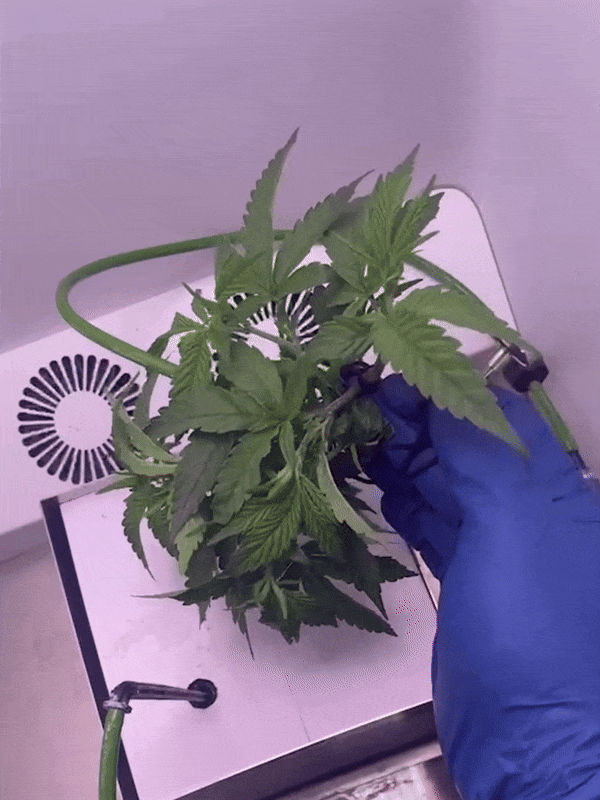
Gently bend the main stalk downward, aiming to lay it flat horizontally or bend it so that the tip is lower than its subsequent growth sites.
*Be gentle and move slowly when bending the main stalk. If you feel it is too rigid and may break, you can bend it in steps: gradually decreasing the vertical angle over the course of a week.
Secure the main stalk in place using ties, straps, trellis, or wire. Make sure that the tie is snug, but not too tight, so it can still grow!
5. Bend and Secure Secondary Branches
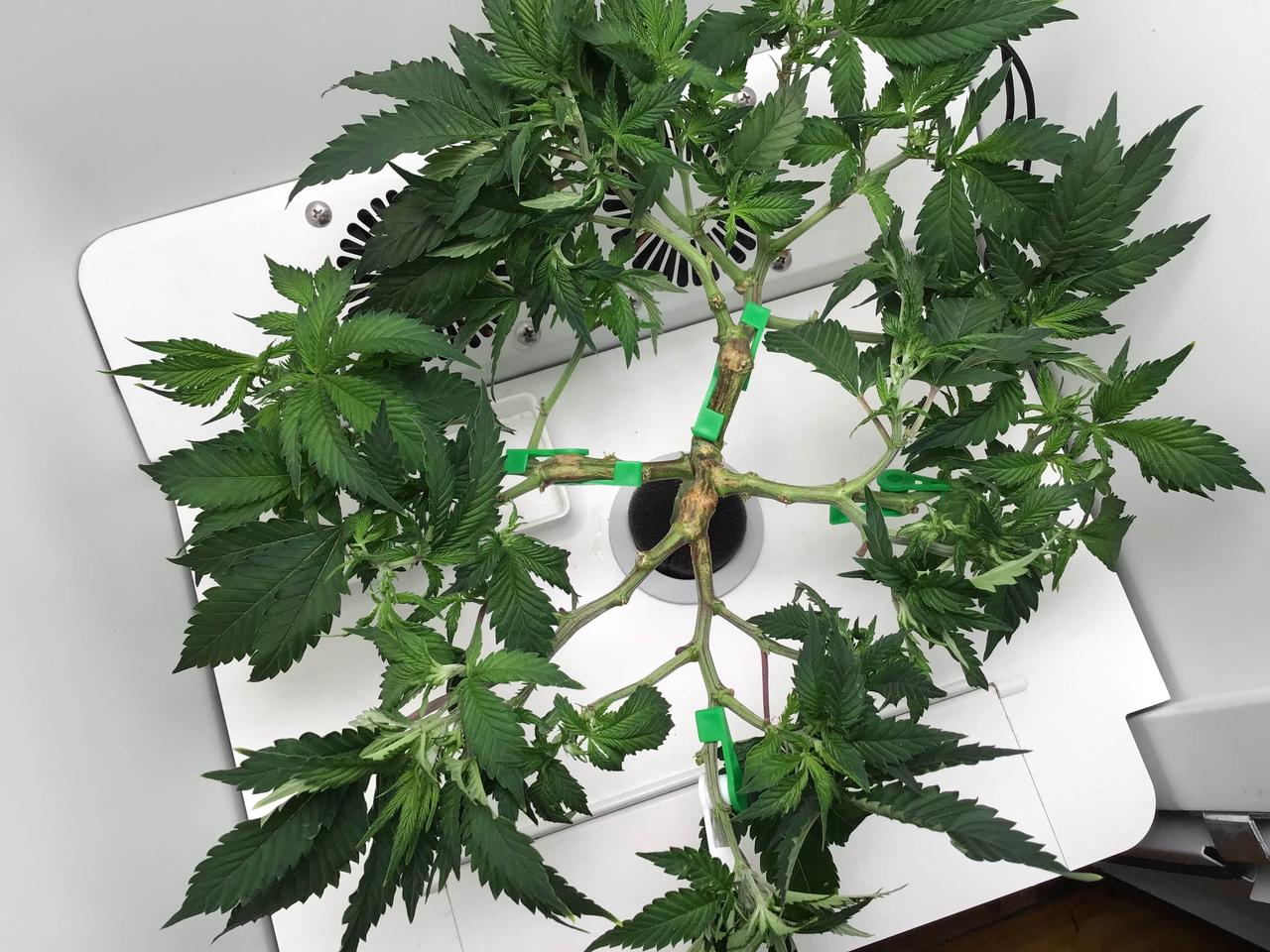
Image via Hey abby grower @Alexander RastaMan
Identify secondary branches that are tall enough to be bent.
Gently bend the secondary branches outward and away from the center, so they are laying flat and creating a more even canopy(same as you did with the main stalk)
Secure the bent branches with your chosen tie.
6. Monitor the Plant and Make Adjustments
Regularly check the plant's response to low stress training. The ties and branches may need to be adjusted to keep the desired structure.
7. Continue Training
As the marijuana plant grows, you will need to repeat the bending and securing process to create an even canopy and develop lower growth into independent branches.
8. Flowering
Once the desired structure and number of main branches are achieved, you can then transition the plant into the blooming stage!
How to LST Autoflower Strains?
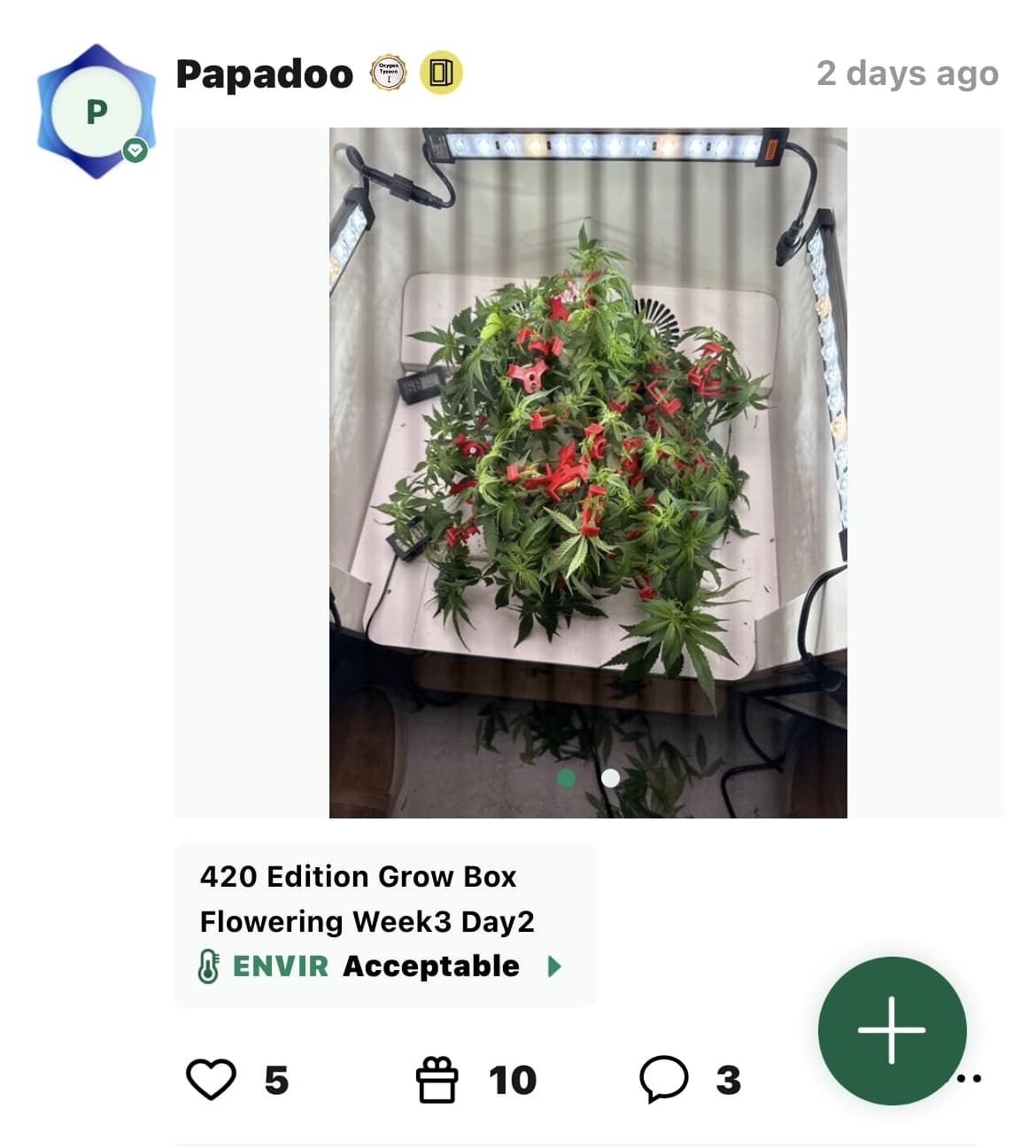
You can also apply this technique and steps to LST autoflower strains. Follow the same process outlined above, but keep in mind that applying too much stress or damage to an autolfower can trigger it to flower prematurely. So move slowly and be extra careful when excercising low stress training on autoflower plants.
LST vs HST
High Stress Training (HST) involves much more drastic and stressful techniques on the plant, such as topping, FIMing, or lollipopping. These techniques often entail cutting or damaging the plant, or removing foliage and growth, resulting in significantly more stress and damage.
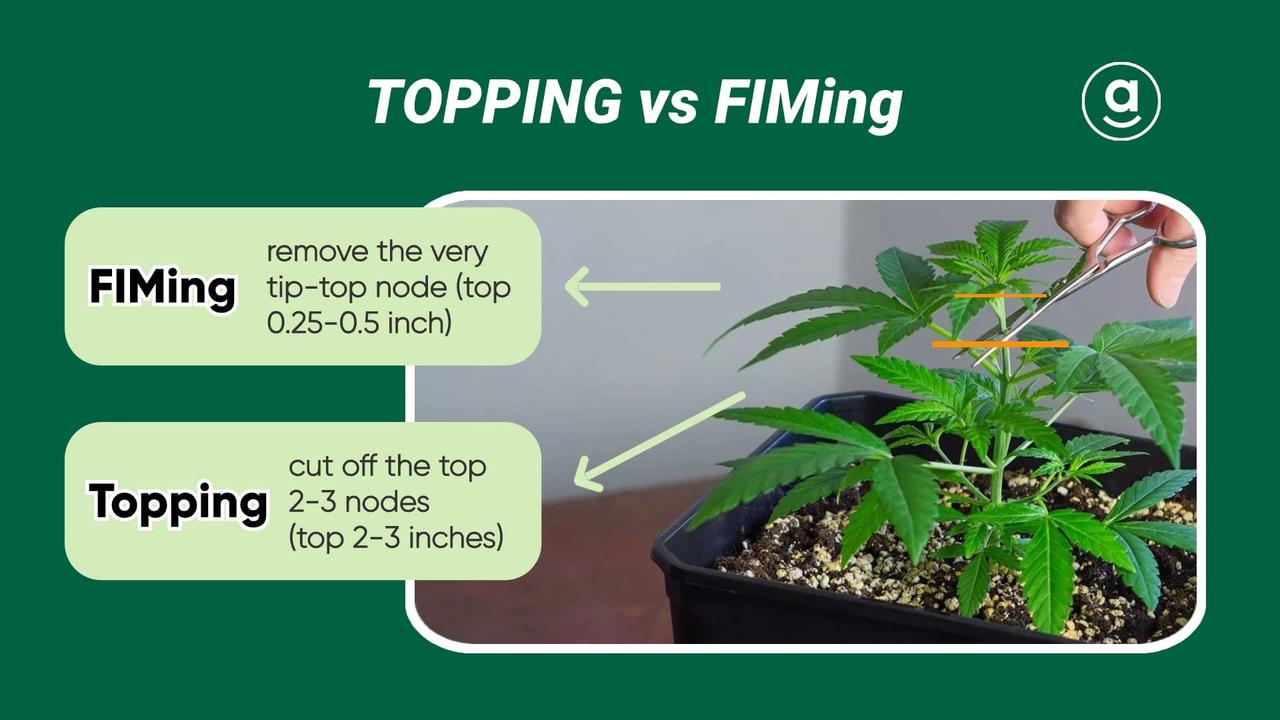
Because of heightened stress, it takes the plant much more time to recover from HST, potentially leading to shock or stalling for a period of time.
In contrast, the stress applied using LST is minimal, but may require more more frequent work and adjustments.
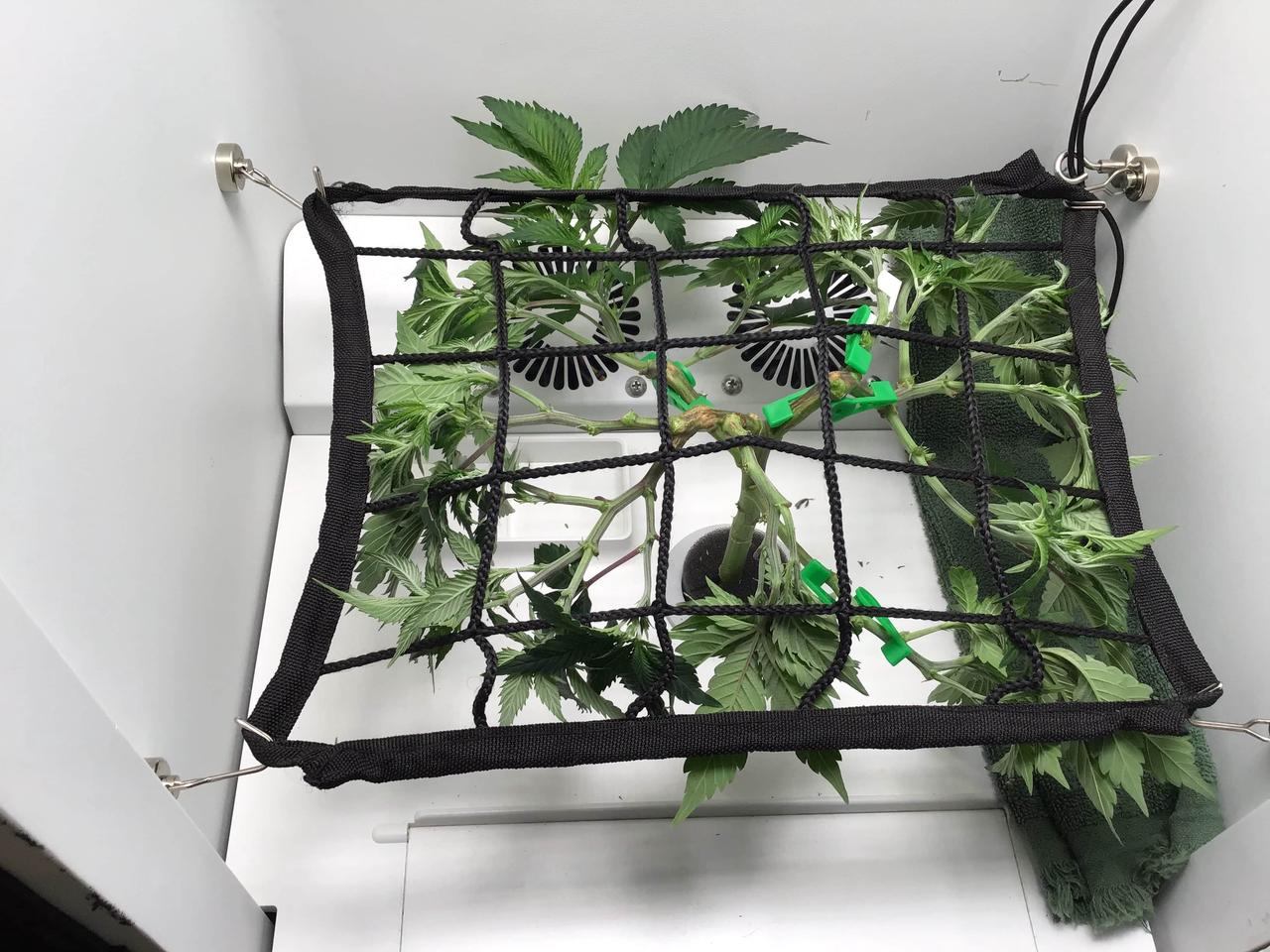
Image via Hey abby grower @Alexander RastaMan
HST and LST can be used together, and often times will produce the best effects. For instance, you topped the plant, and also want to encourage lower growth. To do so, you can bend and LST the branches after topping—it'll help keep the canopy even and make sure adequate light exposure for lower growth sites to grow independently and quickly.
*HST is not suitable for autoflower strains as it applies too much stress. LST autoflowers is a better and much safer approach.
Top Cannabis Strains Suitable for LST
All strains and genetics can benefit from low stress training, however they all will respond differently. Certain varieties may handle stress better than others. Indicas and hybrids, such as Girl Scout Cookies, Kush Mintz, Blue Dream, Master Kush, Atomic Apple, and Sour Diesel, are often well-suited for LST.
Remember, the key to successful cannabis LST is patience and a gentle approach. Avoid causing stress or damage to the plant by bending the plant carefully and slowly. Monitor the plant's response closely and make adjustments as needed to keep the canopy flat and even!
Get Weekly Expert Tips, and Grow Healthy Plants
Join our newsletter to get exclusive growing tips delivered directly to your inbox.

